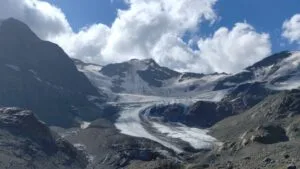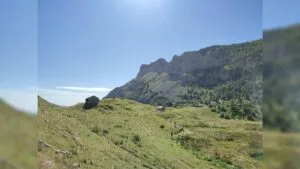Abstract/Description
Switzerland with its pronounced topography and the availability of long-term, high-resolution and high-quality data sets is an ideal testbed for analyzing elevation-dependent climate change. Here, we revisit the trends in Swiss temperature and sunshine duration over the period 1951–2024 using MeteoSwiss’ long-term consistent monthly temperature and sunshine duration gridded data sets at 2 km resolution. We compare the results with those derived from two versions of the E-OBS data set and the ERA5-Land reanalysis, all of them at 0.1° resolution. The MeteoSwiss temperature grid shows increasing temperature in all months and across all elevations. Distinct elevational differences emerge in spring and from September through January. The increased spring warming at medium elevations is likely driven by snow-albedo feedback. The stronger autumn-winter warming at low elevations is linked to a strong increase in sunshine duration at low elevations which is probably partly related to a decrease in the fog and low stratus (FLS) frequency. Both E-OBS versions also show increasing temperatures across all months and elevations. However, while the recent E-OBS v30.0e fails to capture the main elevational differences in spring and from September through January, the extended homogenized E-OBS version (v19eHOM) reproduces these differences with remarkable accuracy. ERA5-Land also warms across all months and elevations. It reproduces the enhanced spring warming at medium elevations but overestimates the effect. It fails to capture the stronger autumn-winter warming at low elevations, likely due to an inadequate FLS representation. Our results underscore that long-term, consistent climate data sets that resolve small-scale features are essential for reliable trend detection, especially for an accurate quantification of elevation-dependent warming at local scales.


